
Απολυτίκιον. Ήχος δ’. Κανόνα πίστεως, και εικόνα πραότητος, εγκρατείας διδάσκαλον, ανέδειξε σε τη ποίμνη σου, η των πραγμάτων αλήθεια δια...

Απολυτίκιον. Ήχος δ’. Κανόνα πίστεως, και εικόνα πραότητος, εγκρατείας διδάσκαλον, ανέδειξε σε τη ποίμνη σου, η των πραγμάτων αλήθεια δια...

“It is good to hide the secret of a king, but it is glorious to reveal and preach the works...

St Sabbas, the first Archbishop of Serbia, and his father, St Symeon the ‘Myrrhobletes’*, are two of the greatest saints of the Serbian Church. They lived in the second half of the 12th and the first half of the 13th centuries. St Sabbas was the youngest son of the ruler of the Serbs Stephen Nemanja. Born in 1169, his secular name was Rastko. Both his mother, Anna, a Greek by birth, and his father took care to infuse into the soul of the young Rastko piety, faith and love of God by bringing him up in accordance with Orthodox tradition. Although endowed with many gifts, the soul of the young Rastko found no tranquillity among the comforts and riches of the ...

In Greek Saint Anastasios was born in the village of Rachiz in Persia, which was situated at the province of...
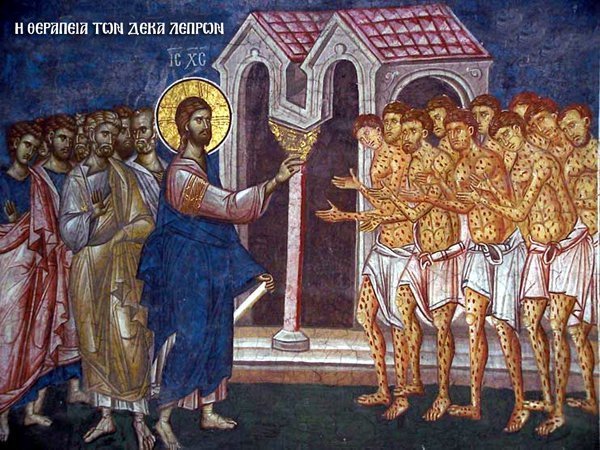
Imagine for a moment how frightening it would feel to be cut off from all other people, without any chance of contacting or encountering anyone else, while at the same time having a body which was sick and continuously deteriorating as a result of a contagious disease. Add to that the permanent disdain of people who believed that the disease we had was a punishment for our sinful life. Then suddenly along comes someone who approaches us, ignoring the dangers, trampling on the prevailing social prejudices, demonstrating clearly and fearlessly His love for us. Wouldn’t we be endlessly grateful to Him? Such was the case, presented in Saint Luke’s Gospel narrative, of the ten tragic lepers who were touched by Christ’s ...

Here’s the shortest and easiest path to salvation: Be obedient, restrained, don’t judge, and guard your heart and mind against wicked thoughts. Think well of everyone and bear in mind that the Lord loves them. Because of these humble thoughts, the grace of the Holy Spirit will dwell in your heart and you’ll say: ‘The Lord is merciful’.
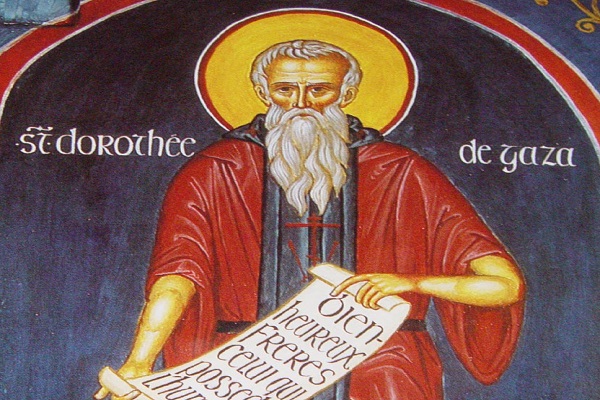
Excerpt from Instruction 1 What, then, is the cause and what’s the cure for this arrogant and disdainful behaviour? Listen to what the Lord says: ‘Learn from me, for I am gentle and humble in heart, and you will find rest for your souls’ . Briefly, in a single sentence, He’s shown us the root cause of all evils; and their antidote, the cause of all blessings. He’s shown us that pride has overcome us and that we can’t be free of it except through its opposite, which is humility. This is because pride begets arrogant and disdainful behaviour and catastrophic disobedience, precisely as humility begets obedience and the salvation of our soul. I mean, of course, real humility, not ...

If you’re sincere and don’t have a high opinion of yourself, you’re simple, you’re humble. All of this brings solace to the soul, but is also obvious to others. Other people know if you really feel for them or if you’re being hypocritical. A reprobate’s better than a Christian hypocrite. So, no smiles of hypocritical love, just natural behaviour. No badness or hypocrisy, but love and sincerity.
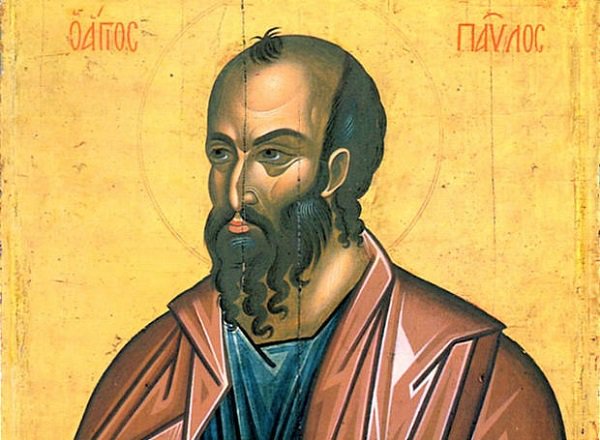
In today’s reading, among the other things St. Paul the Apostle is talking about, references the sorrows and persecutions he was suffering (but never was defeated by). The matter of tribulation is a very important one for us all. Who doesn’t face sorrows in their life? Jesus prepared us with these words: “In the world you will have tribulation” (John 16:33). Paul also was preparing those who were becoming members of the Church, in that “We must through many tribulations enter the kingdom of God” (Acts 14:22). It is the universal rule that we are all going to face hardship. Even the best of humanity, and the saints themselves have gone through adversity. Even the Holy Mother of our Lord ...
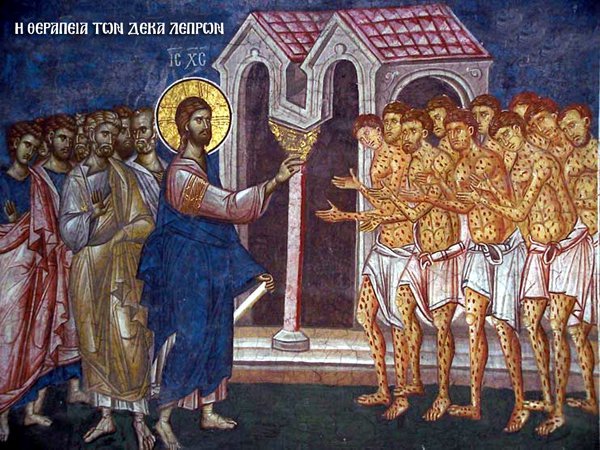
From the Kyriakodromion of Monk Agapios These ten lepers, in the most succinct manner, provide an image of the whole of human nature, which was entirely leprous and rendered useless by sin. It had been justly expelled from Jerusalem Above, that is Paradise, just as the lepers were exiled from Jerusalem . They couldn’t be cured by Priest, Levite, Prophet or any other person, not even by an Angel, unless the Mighty Counsel of the Most High, the Messenger coaeval and consubstantial with God, came down from heaven, and humanely became human in order to save us humans. All of us, then, had this leprosy. None of us was free from sin except those whom the all-wise Lord Christ had ...

Wherever you are, don’t compare yourself with others to make your soul feel better. Otherwise, the devil may fool you into thinking you’re better than they are.

Don’t talk about things you haven’t seen with your own eyes as if you actually have. Don’t confirm with conviction anything you’ve only heard about. Accustom your tongue to telling the truth at all times. Lies are often born out of the desire to please others but they distance the soul from the fear of God.

Every day, a certain task is completed on earth. It’s the most important and sacred task that people can undertake. It’s the Divine Liturgy, the continuation of the Last Supper which Jesus Christ held with His disciples. People can do many and varied great things, but nothing greater, nothing more important than the Divine Liturgy. This is a unique privilege, given to us by God, because even the angels are unable to celebrate the Divine Liturgy. At this service, the angels work together with us, as we hear in the tropario of Saint Spyridon: ‘and in the singing of your holy prayers (i.e. the celebration of the Divine Liturgy), you have angels concelebrating with you’. Indeed, as Saint Peter writes, ‘on ...
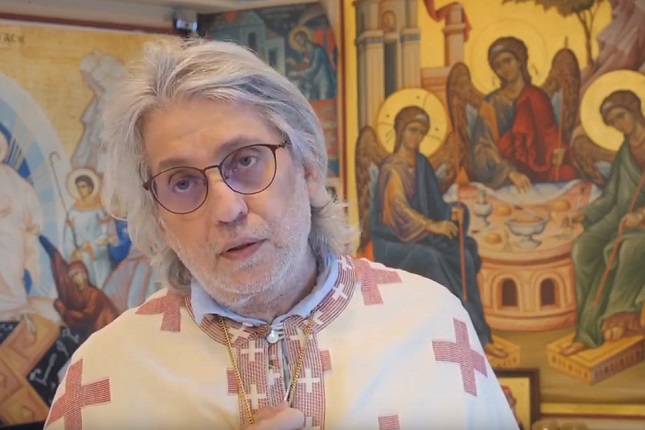
Fr Jonah from Taiwan speaks on Jesus baptism and the temptations in the desert.

Christ is right next to us, even if we don’t see Him… Once in a while He’ll give us a slap on the head, because He loves us so much. Christ wants to bring you out of the thorns, because He’s a gardener, but all you want is to be left in peace.
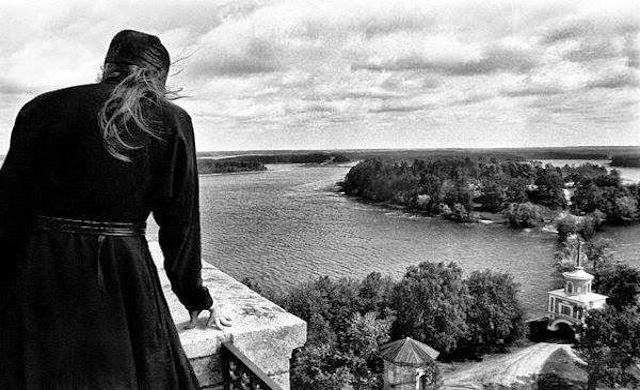
Nobody’s the cause of perdition; only our own will is. God’s the cause of salvation: He gave us life and bliss, knowledge and power and His own Self. Not even the devil can bring us to perdition against our will; all he can do is put the recollection of wickedness in our mind. But it’s we, by our own will and volition, who decide to do evil. The good Lord doesn’t try to prevent us by force, so that we don’t disobey and become liable to greater punishment. Nor does He take away our free will, which He did well to grant us. So salvation or perdition is in our own hands.
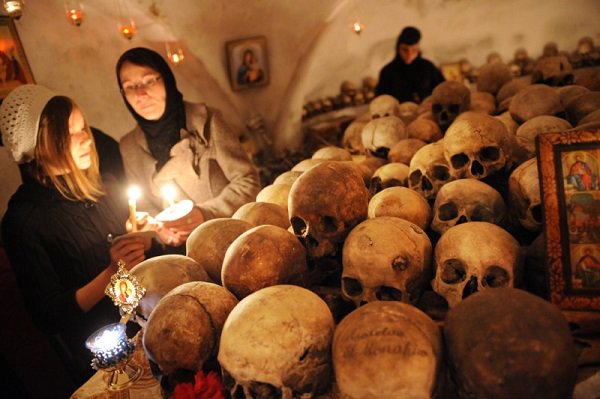
The recollection of death helps us get beyond our former self, because it brings humility to the soul. When we forget death, we’re under the illusion that we’ll be on earth for ever and this increases our arrogance, our greed, our worship of the flesh and our proclivity for exploiting others. Recollection of death gives us the sense of our limitations on earth and the importance of our thoughts, words and deeds for our life after death and in eternity. It helps us to deal seriously with this present life, in the light of eternity, so that we don’t waste our earthly life in dissipation, heedlessness and frivolity, never giving a thought to the consequences. It was said by the ancient Greek ...
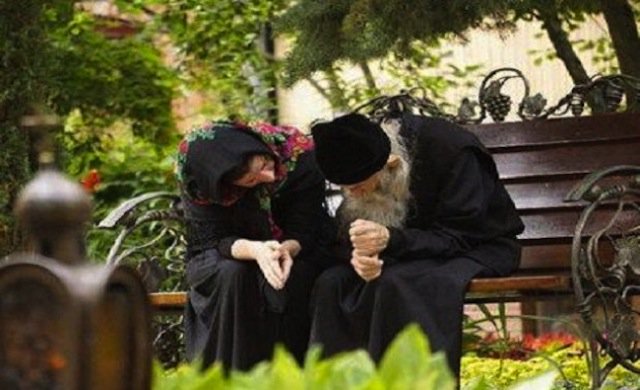
God’s gifts come by themselves, provided the heart is clean.
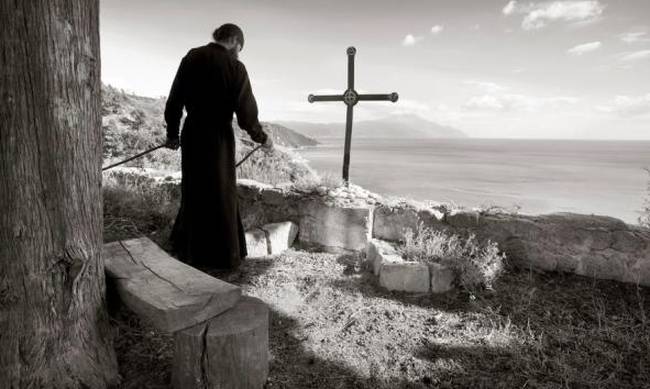
It’s natural to have feelings of guilt if we look at sin as a transgression against ‘the law of God’ rather than as a sickness we’ve inherited as children of the first Adam. Because if, over time, sin becomes second nature, it exercises authority in our soul making us do what we don’t want to, as Saint Paul says. As we all know, this brings its own pressure, peace is lost and turmoil arrives, with everything this means for our daily life. Because they knew themselves so well and therefore had a deep knowledge of human nature, our holy Fathers and Mothers speak of sin, festering within us, as an illness. So we aren’t guilty, but sick and we need to ...
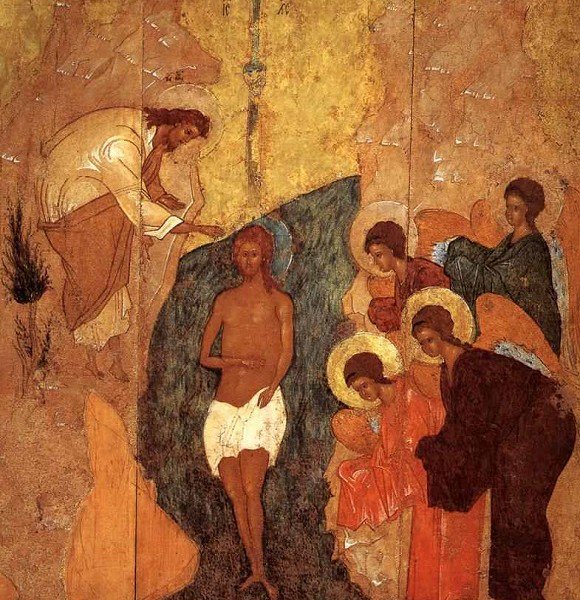
This year, the Sunday after Theophany coincides with the handing-back of the feast. ‘The Saviour has appeared, Grace and Truth’. The Saviour has appeared, about Whom the prophets spoke in preparation for His coming. The greatest of the prophets, the Honourable Forerunner, who was granted the task of baptizing ‘Him who was foretold’, has affirmed to us that He Whom he baptized is the Son of God. John is now going to seal with his blood the truth of his testimony and his uncompromising struggle against every kind of lie. The Judge and Competitor The baton now passes to the Judge, Who ‘came out conquering and to conquer’ (Rev. 6, 2), in precisely this contest between the truth and lies, between the ...